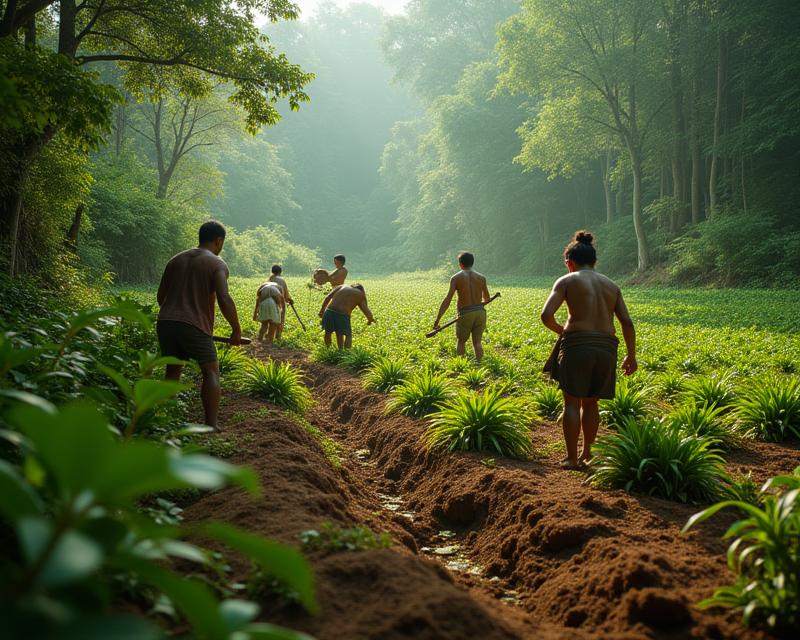Amazon's Ancient Wisdom: Sustainable Farming
Publish in Sustainable Farming el 04/07/2025 16:01
Ancestral Amazonian Farming: A Lesson in Sustainability
For centuries, the Amazon rainforest thrived, supporting diverse communities through ingenious farming practices. Unlike many modern agricultural approaches, these ancient methods prioritized soil health and biodiversity, allowing for food production without widespread deforestation. It’s a powerful example of how humans can live in harmony with nature – a lesson incredibly relevant for farmers and gardeners today.

Terra Preta: The Secret to Rich Soil
One of the most remarkable achievements of Amazonian cultures was the creation of Terra Preta, often translated as "dark earth." These incredibly fertile soil patches were intentionally created by adding charcoal, biochar, bone, and other organic materials to the naturally poor Amazonian soil. Charcoal, produced through slow, low-temperature burning of biomass, acts like a sponge, retaining water and nutrients. This dramatically improved soil fertility and water retention, creating ideal conditions for growing crops.
Forest Management: A Holistic Approach
Amazonian farming wasn't about clearing vast areas of forest. Instead, it involved a sophisticated understanding of forest ecosystems. Slash-and-char techniques were used, but not in the destructive way often associated with deforestation. Small areas were cleared for cultivation, and the resulting biomass was often used to create Terra Preta or as mulch, returning nutrients to the soil. They also practiced agroforestry, integrating trees into their farming systems. These trees provided shade, prevented soil erosion, and offered additional food sources, creating a more resilient and productive landscape.
Lessons for Modern Farmers
The practices of ancestral Amazonian farmers offer valuable insights for modern agriculture. Focusing on soil health through composting, cover cropping, and the addition of organic matter is crucial for long-term productivity. Embracing agroforestry can enhance biodiversity and create more resilient farms. And importantly, understanding and respecting the natural ecosystems on your land is key to sustainable farming. By learning from these ancient traditions, we can move towards a more regenerative and environmentally responsible approach to food production, ensuring healthy soils and thriving ecosystems for generations to come.





